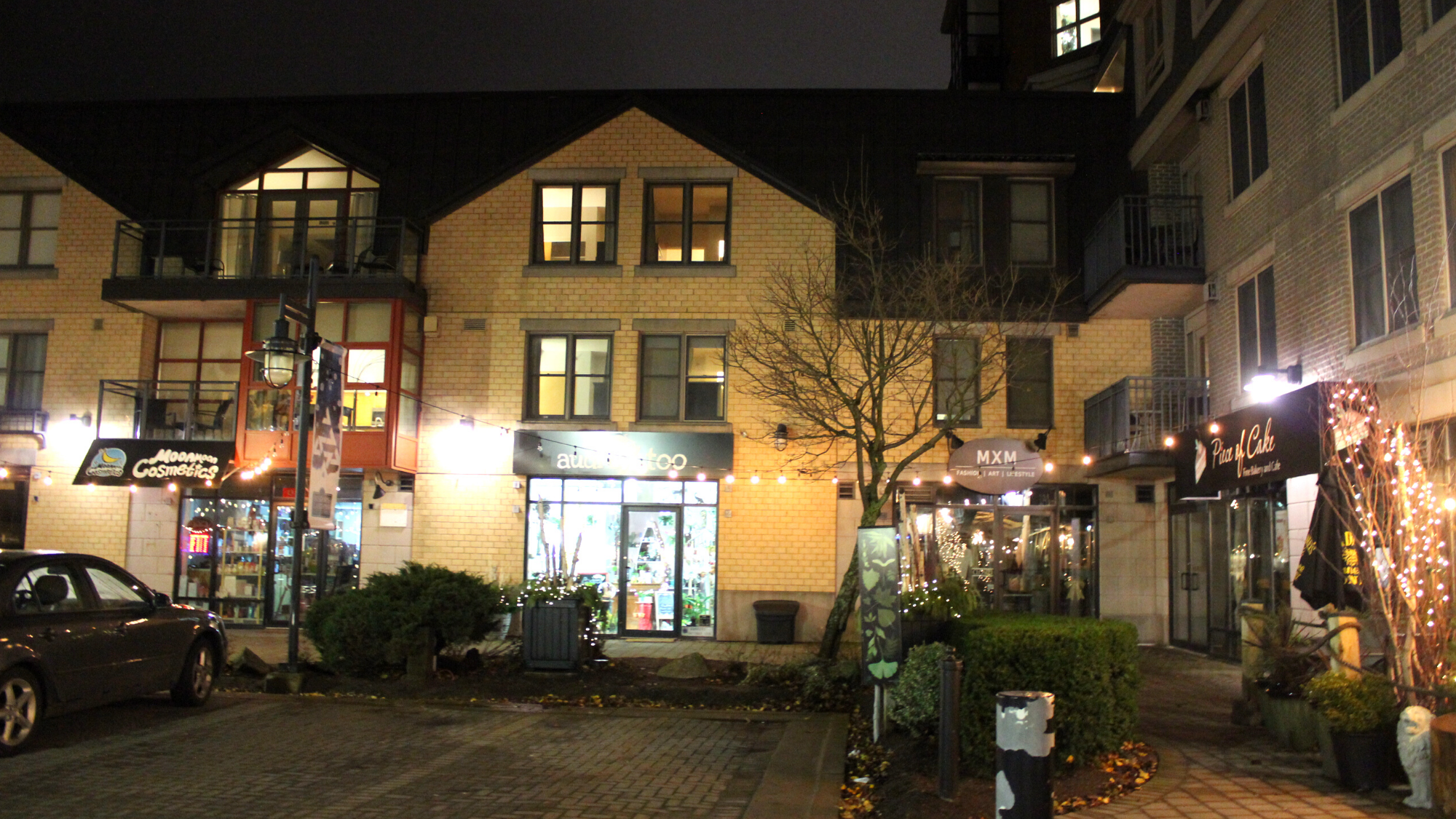Why you’re being told to shop local this holiday season
Across Nova Scotia, campaigns are urging people to spend their money on small businesses

caption
Lower Water St in Halifax.It’s the list that’s been floating around everyone’s news feed: A Very Merry + Local Guide to Keeping Our Friends’ Businesses Alive.
“I tagged Halifax Noise and she reposted it,” Emily Ross, one of two friends who made the list, said in an interview. “The moment that happened I was like, ‘Was this a mistake?’” The list blew up.
Ross made the Halifax list with Ali Haberstoh, who had first made a sheet for Toronto. Not-Amazon.ca started off as a collective spreadsheet of local businesses and retailers that could be used as a guide when holiday shopping. Last week, web developer Baker Baha reached out to Haberstroh and helped turn it into a fully functioning website. Not-Amazon was in full swing.
“It’s really just a thing that came out of nowhere you know, it wasn’t a planned thing,” Ross said. “I think Ali just did it on a whim one day and wasn’t expecting this much attention, and then I joined her, and then this guy made it into a website. It’s kind of like suddenly it happened without much planning.” Related stories
Ross wants to see the website continue to grow beyond the holidays. “Yes, it’s a good holiday guide, but I also want it to be an all-the-time guide,” she said. Ross wants to see a local business list for every major city in Canada. The latest addition to the website is Calgary, created by Becky Jones.
View this post on Instagram
“I feel like people aren’t aware of what’s available locally sometimes. Some are just used to buying it in big stores when they could get something that’s even better from someone in their city,” Ross said.
“Corporations have enough money, we don’t need to give any more to them.”
Small businesses struggling
Like Ross, Louis-Philippe Gauthier, director of provincial affairs with the Canadian Federation of Independent Business (CFIB), wants people to choose their local shop over the big online retailers.
“If there was a way to make (Amazon) unfashionable, I would,” Gauthier said in an interview.
A little over a month ago, CFIB surveyed Canadians. They asked where they would spend their holiday budget, and “66 per cent was going to the big box stores and the Amazons of this world,” Gauthier said.
“This leaves a small percentage of spending towards small businesses.”
This is the time of year when small businesses and retailers make a substantial amount of their revenue, Gauthier said. “It is a very important period of the year for them. It allows them in normal times to have enough funds to go through the later months where sales go down,” he said.
But this year, it’s even more important for people to consider small businesses when purchasing, Gauthier said, especially for this holiday season. In Nova Scotia, only 35 per cent of small businesses are at or above normal revenue, according to CFIB’s Small Business Recovery Dashboard.
“Atlantic Canadians, it’s part of who we are as being community grounded and community focused. The reality is those small businesses are very much a part of our community,” said Gauthier.
“From a conscious thought decision process, if I have a spare dollar, where will it count most? If at all possible, I’d invite everyone to be a small business conscious consumer during this holiday time.”
The Ecology Action Centre promotes buying local food and Christmas trees. Marla MacLeod, the centre’s director of programs said there are plenty of ways people can think green when shopping local during the holidays.
“If you think about your Christmas dinner, for example, knowing the farmer who produced the carrots or the turkey or the cranberries,” Macleod said.
“You can ask them about their farming practices. You can choose to support the practices that you want to see — more environmentally friendly practices — organic, low pesticide use, free range, those kinds of things.”
Boosting the economy
Monica MacLean, who works for Discover Halifax, said there are other ways to support local without opening your wallet. Liking a page and leaving a review can go a long way, she said — this is how you expose businesses to more audiences.
MacLean came to Halifax to go to university, but she said what helped her decide to stay was the sense of local community. “I first came here as a traveler and the reason that I thought, ‘Well I can actually see myself staying in Halifax’ was because of those various experiences I’ve had as a visitor.”
Nova Scotia’s tourism industry is suffering from COVID-19. From January to the end of September, Cape Breton and Halifax experienced the largest yearly decline in room nights sold. Cape Breton was down 59 per cent and Halifax 58 per cent. Halifax’s tourism industry accounts for just over two per cent of Nova Scotia’s Gross Domestic Product (GDP).
“At the end of the day we’ve always been cheerleaders of supporting local and our businesses because they’re such an important part of our tourism economy. They’re what makes us interesting when you come here. They’re that welcoming vibe that makes (people) want to come back,” said MacLean.
#CapeBretonFirst
To help compensate for the economic impact of the pandemic, the Cape Breton Partnership relaunched its buy local campaign in September under a new name, #CapeBretonFirst.
Communications director Mark Inglis said the goal of the campaign, which was originally called Think Cape Breton First, is to remind Cape Bretoners that buying local is now more important than ever.
“We do have to focus on supporting one another during COVID-19 and beyond.” Inglis said in an interview.
“We know that some of these smaller shops can’t handle the lack of shopping and the lack of support. So, if we’re able to support one another, then this is the time to do it.”
View this post on Instagram
Tasha Brewer owns a dog training business in Sydney. She said she has always been a strong supporter of local business and plans to do almost all of her shopping at local businesses this holiday season.
“I think that there are so many talented, amazing people here so it’s always been something that I’ve been pretty passionate about,” Brewer said.
Brewer said the only gifts she’ll buy online this year are the ones she can’t find in a local store.
To help promote the campaign, the Cape Breton Partnership has partnered with the Breton Ability Centre to make shirts, hats, storefront stickers and other promotional items to be sold online. All proceeds from the online sales will go to the Breton Ability Centre.
About the author

Talia Meade
Student journalist from Ottawa. Interested in videography, creative nonfiction and politics.

Simon Smith
Simon Smith is a multimedia journalist with The Signal in Halifax, Nova Scotia. He is an avid traveller and is interested in local news, business,...